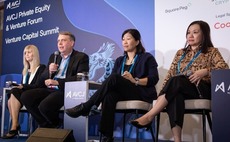
Mekong delivers golden return
As office workers clock off in Hanoi and Ho Chi Minh City, Vuvuzela outlets begin to fill up. It was supposed to be a Hooters-style casual dining chain – and the female staff dress accordingly – but Vuvuzela has morphed into a very local beer club. Big screen TVs show fashion shows instead of sports; discounts are offered to groups who buy 100 glasses of beer; and as the night wears on DJs take up residency and the whole place turns into a disco.
"Vuvuzela has democratized the bar scene," says Chad Ovel, a partner at Mekong Capital, which invested in Vuvuzela's parent company, Golden Gate, in 2008. "It is astonishing to see the number of office worker females going there and hitting the beers and chicken wings. We didn't expect this - we thought it was more about casual sit-down dining - but there was always the idea that the more concepts we could create that were chef-less kitchens, the better."
Last week, Mekong exited Golden Gate as Standard Chartered Private Equity took a significant minority stake in the business for $35 million, acquiring shares from the founders as well. Mekong has generated a net multiple of 9.1x and an IRR of 45.1% on an initial commitment of $1.5 million.
SCPE is buying into a firm that operates 11 proprietary restaurant brands across 67 outlets and is targeting 120 outlets within three years. In 2008, it was a five-outlet mushroom hotpot chain with a business model closer to fine dining than the mass-market affordable approach that has enabled it to achieve scale.
"We wanted there to be quality service but not at an outrageous price," says Ovel. "We spent a lot of time on pricing strategy. Even though we had high inflation in Vietnam we kept the pricing stable by improving supply chains and inventory management."
The second concept Golden Gate introduced, rotary express hotpot chain Kichi-Kichi, targeted price points that appealed to a broader consumer demographic. Kichi-Kichi is at the forefront of the company's expansion into second-tier cities, although Vuvuzela is also expected to catch on in these markets.
The company was founded by five locals who had previously spent many years in Russia, and two of them are still actively involved in managing the business. Ovel puts their success down to a willingness to absorb ideas from other markets. The cost efficiencies derived from chef-less kitchens - deliveries are made to outlets from central facilities - were a key part of this and Mekong took the management team to Hong Kong to see how it was done.
They also visited Lettuce Entertain You in Chicago, which has around 50 different concepts scattered across more than 100 restaurants. At the time Golden Gate was struggling with the management structures for 10 concepts. "It gave them a deeper understanding of how to incentivize brand managers," Ovel explains. "They are generally motivated to act like individual CEOs rather than as back office."
Latest News
Asian GPs slow implementation of ESG policies - survey
Asia-based private equity firms are assigning more dedicated resources to environment, social, and governance (ESG) programmes, but policy changes have slowed in the past 12 months, in part due to concerns raised internally and by LPs, according to a...
Singapore fintech start-up LXA gets $10m seed round
New Enterprise Associates (NEA) has led a USD 10m seed round for Singapore’s LXA, a financial technology start-up launched by a former Asia senior executive at The Blackstone Group.
India's InCred announces $60m round, claims unicorn status
Indian non-bank lender InCred Financial Services said it has received INR 5bn (USD 60m) at a valuation of at least USD 1bn from unnamed investors including “a global private equity fund.”
Insight leads $50m round for Australia's Roller
Insight Partners has led a USD 50m round for Australia’s Roller, a venue management software provider specializing in family fun parks.






